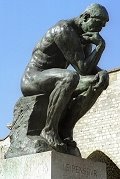.
BOOK XIX
OF LAWS IN RELATION TO THE PRINCIPLES WHICH FORM THE GENERAL SPIRIT, THE MORALS, AND CUSTOMS OF A NATION
.........
12.--Of Customs and Manners in a despotic State
It is a capital maxim, that the manners and customs of a despotic empire ought never to be changed; for nothing would more speedily produce a revolution. The reason is, that in these states there are no laws, that is, none that can be properly called so; there are only manners and customs; and if you overturn these you overturn all.
.
Laws are established, manners are inspired; these proceed from a general spirit, those from a particular institution: now it is as dangerous, nay more so, to subvert the general spirit as to change a particular institution.
.
There is less communication in a country where each, either as superior or inferior, exercises or is oppressed by arbitrary power, than there is in those where liberty reigns in every station. They do not, therefore, so often change their manners and behavior. Fixed and established customs have a near resemblance to laws. Thus it is here necessary that a prince or a legislator should less oppose the manners and customs of the people than in any other country upon earth.
Their women are commonly confined, and have no influence in society. In other countries, where they have intercourse with men, their desire of pleasing, and the desire men also have of giving them pleasure, produce a continual change of customs. The two sexes spoil each other; they both lose their distinctive and essential quality; what was naturally fixed becomes quite unsettled, and their customs and behavior alter every day.
13.--0f the Behavior of the Chinese
But China is the place where the customs of the country can never be changed. Besides their women being absolutely separated from the men, their customs, like their morals, are taught in the schools. A man of letters may be known by his easy address.27 These things being once taught by precept, and inculcated by grave doctors, become fixed, like the principles of morality, and are never changed.
--------------------------------------------------------------------------------
FOOTNOTES
27 Du Halde.
Back to “The Spirit of Laws” index page


















































